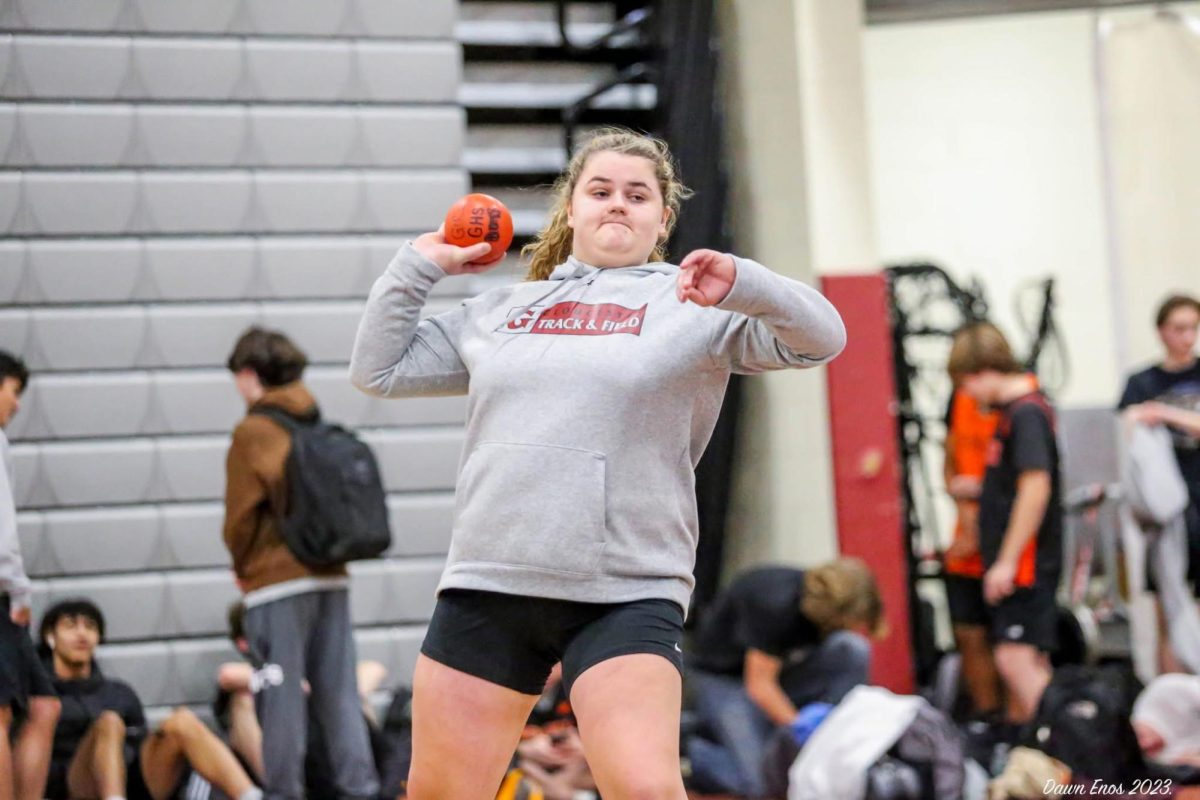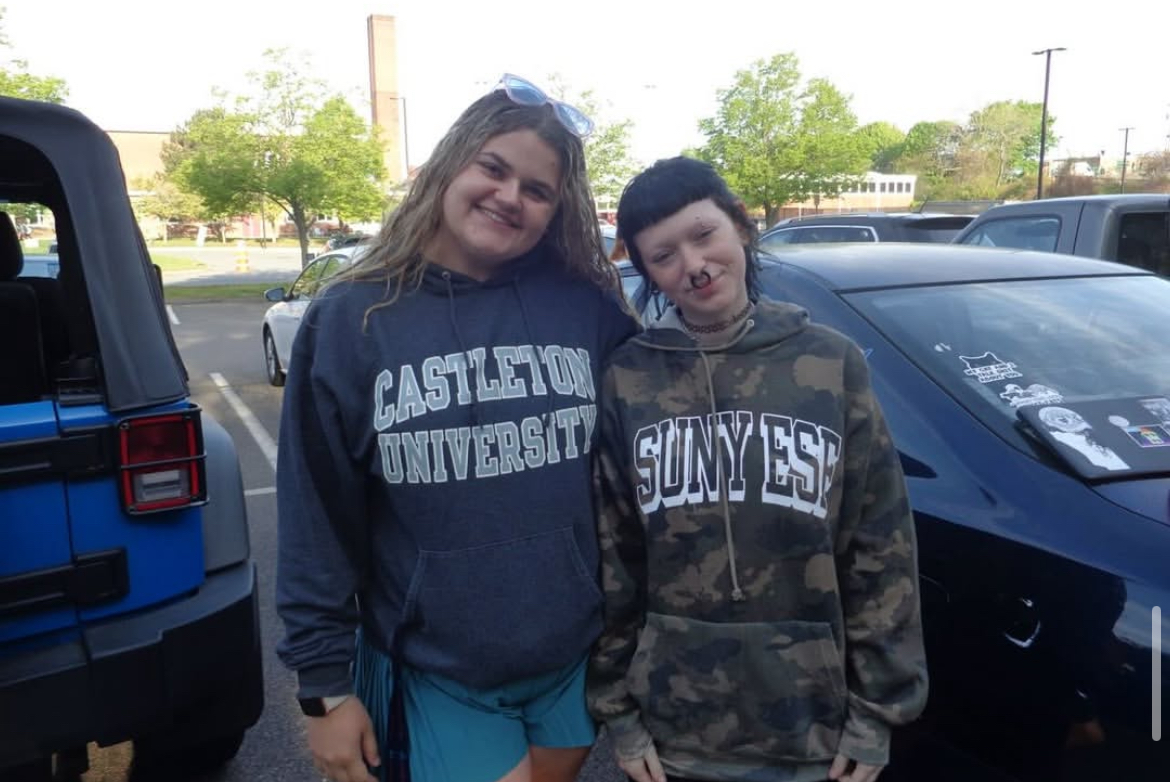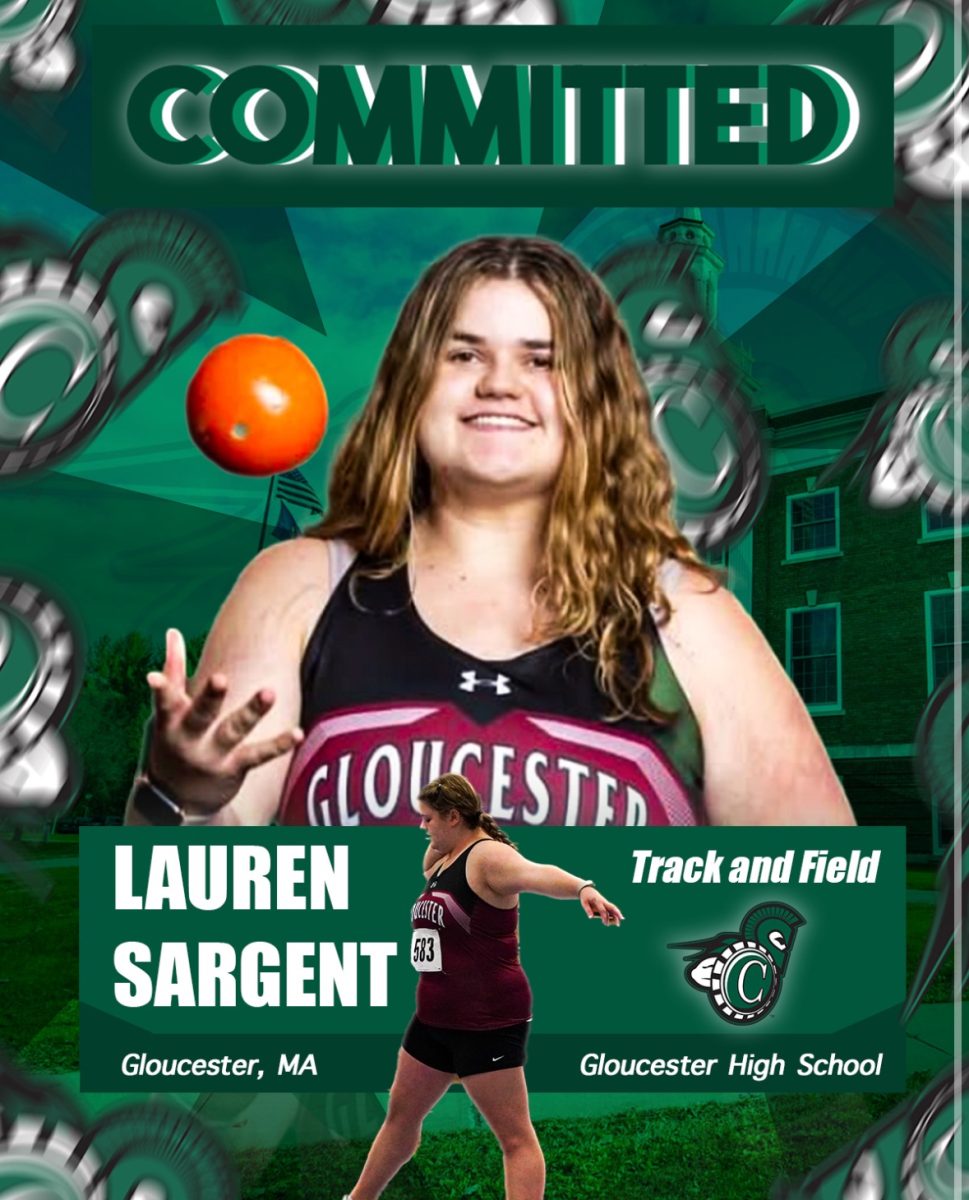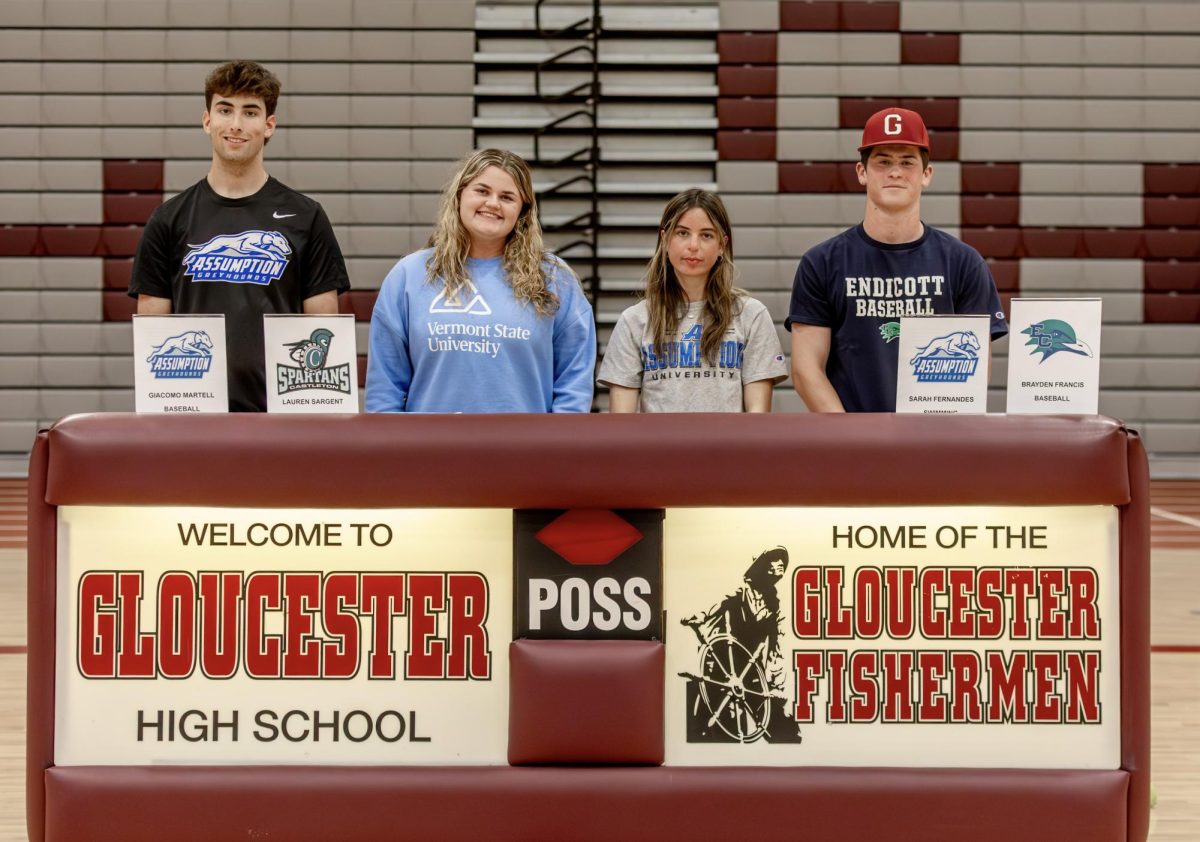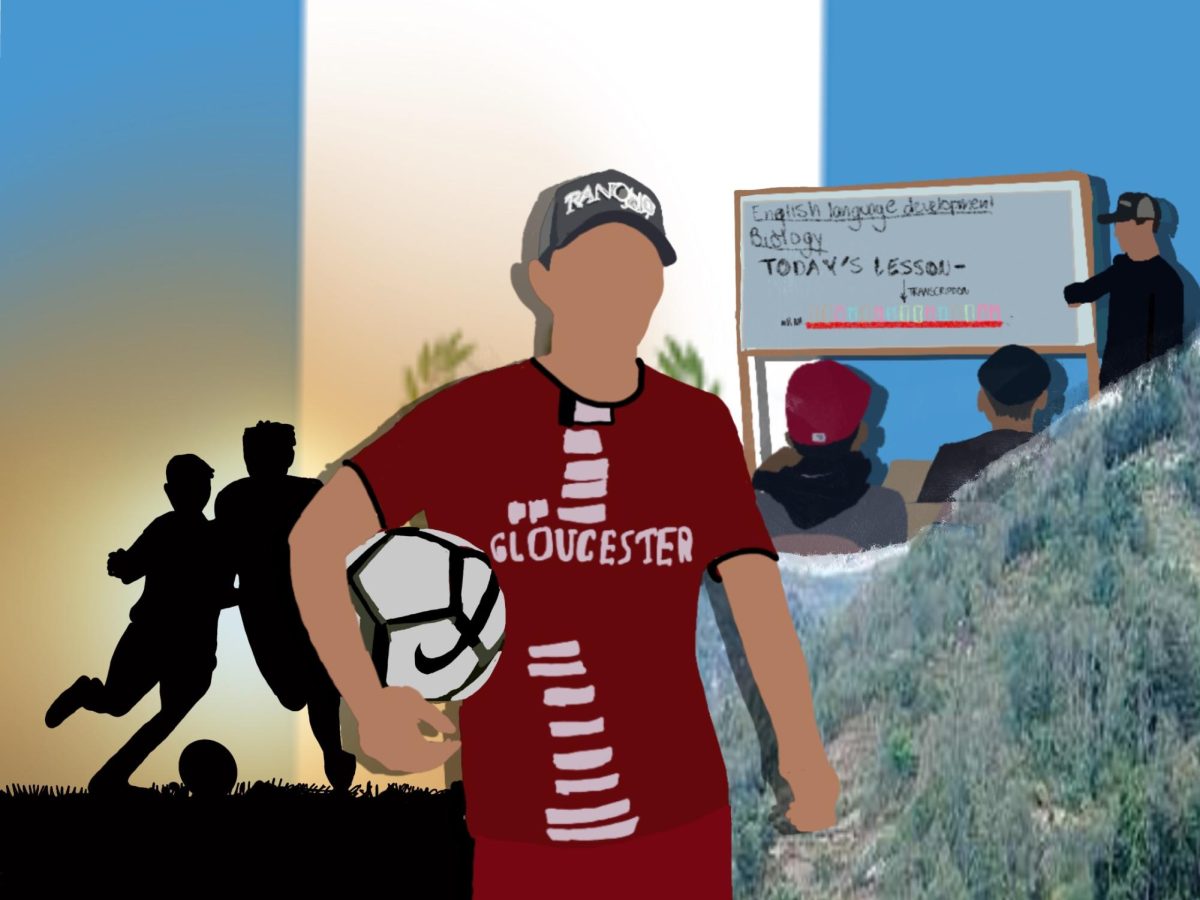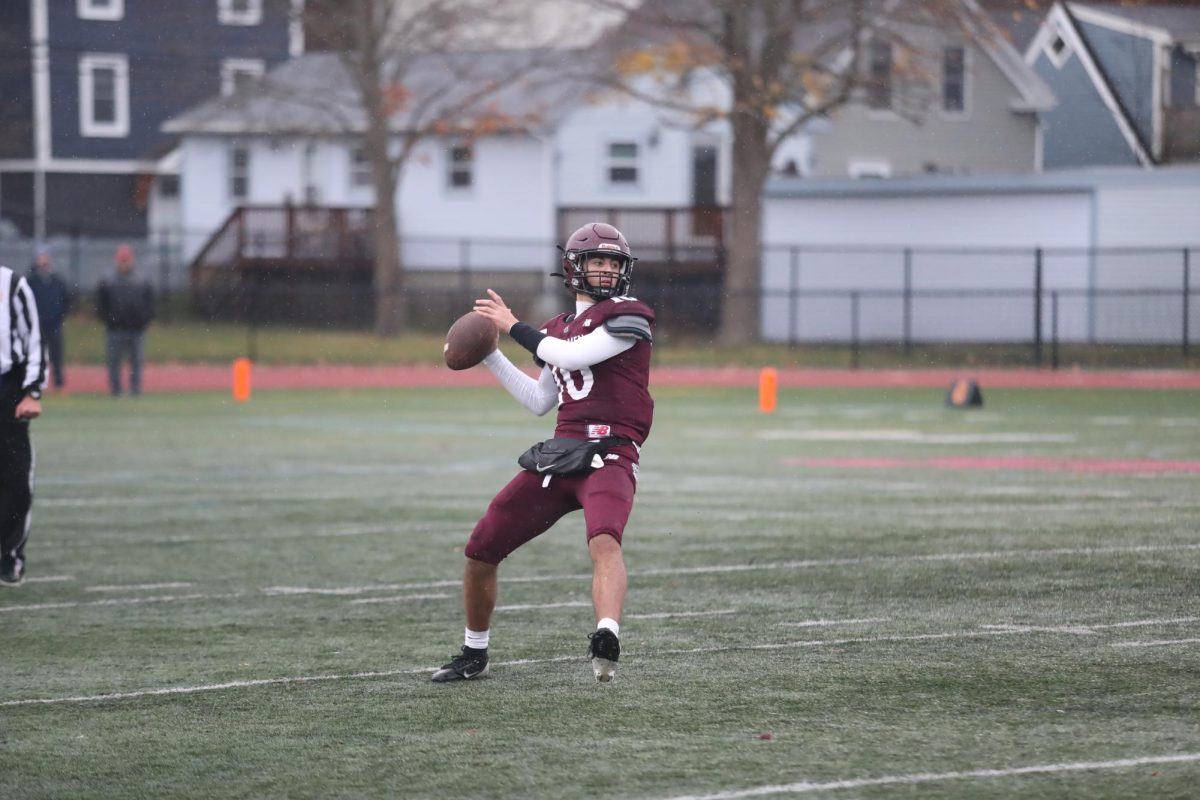The Long Road to Vermont: Sargent continues track career at Castleton University
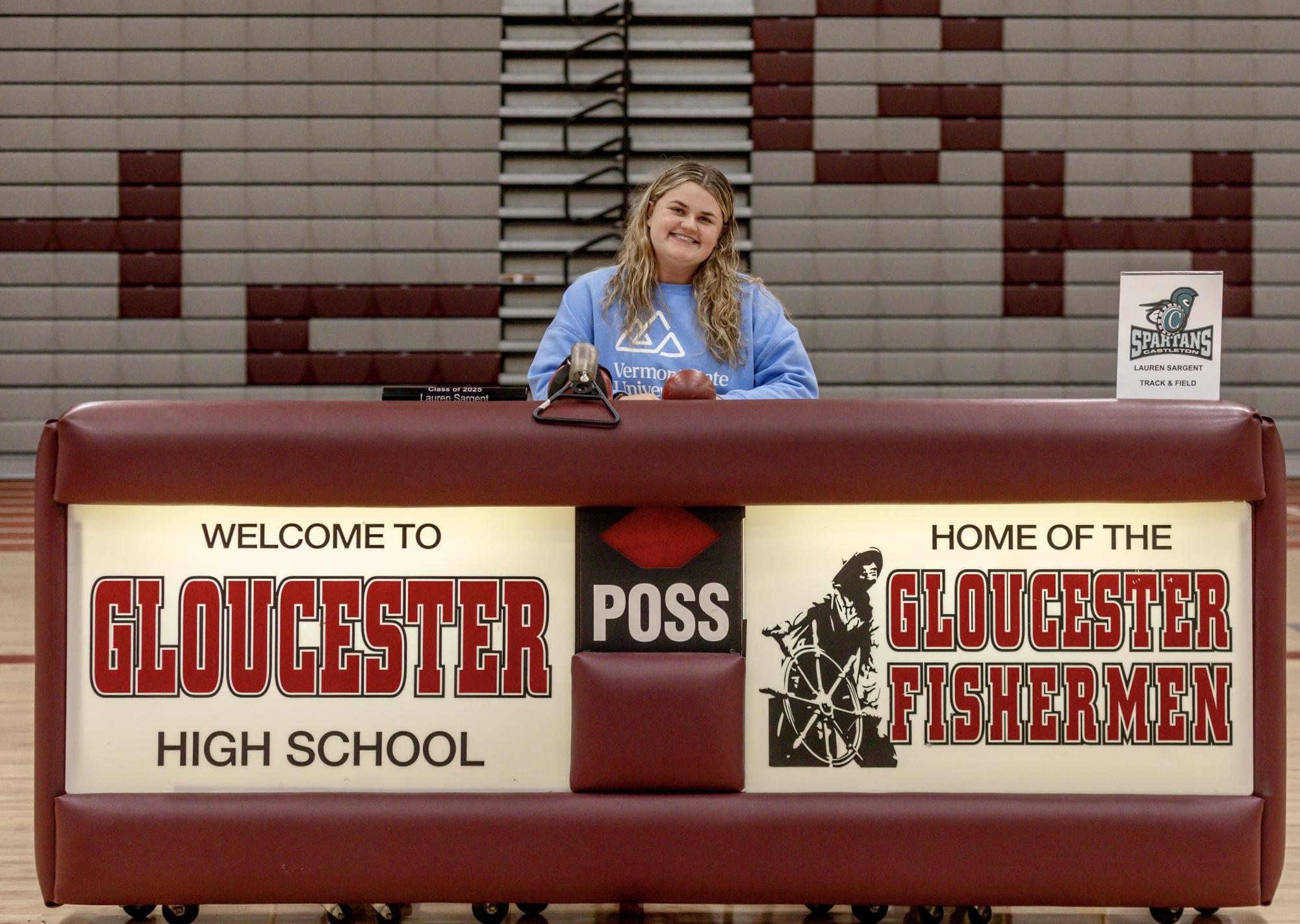
The hallway was always unfamiliar. New lockers, new faces, new routines she had to learn before the week was out. She had stopped counting how many schools she’d attended. Whether it was Alaska, New York, Virginia, or Massachusetts, she knew the drill: say hello, don’t get too close, and pack up again when the orders came in. Being the youngest daughter in a military family meant her life was always in motion, her friendships fleeting, her sense of belonging left behind with every move.
Home wasn’t a place—it was a concept. And even that felt like a stretch.
She never expected to find it in a throwing circle.
It happened one afternoon, dragged against her will to her sister’s track practice. She sat with her arms crossed, uninterested in watching kids chase laps while their coaches shouted intervals. It wasn’t long before someone handed her a shot put—heavy, unfamiliar, cold in her palm. “Just try,” she was told.
She did. The throw wasn’t perfect—far from it— but there was something in the weight, the balance, the moment of control as the ball left her fingers.
In that brief moment, Lauren Sargent wasn’t lost or in-between as she had been her whole life. She was exactly where she was meant to be.
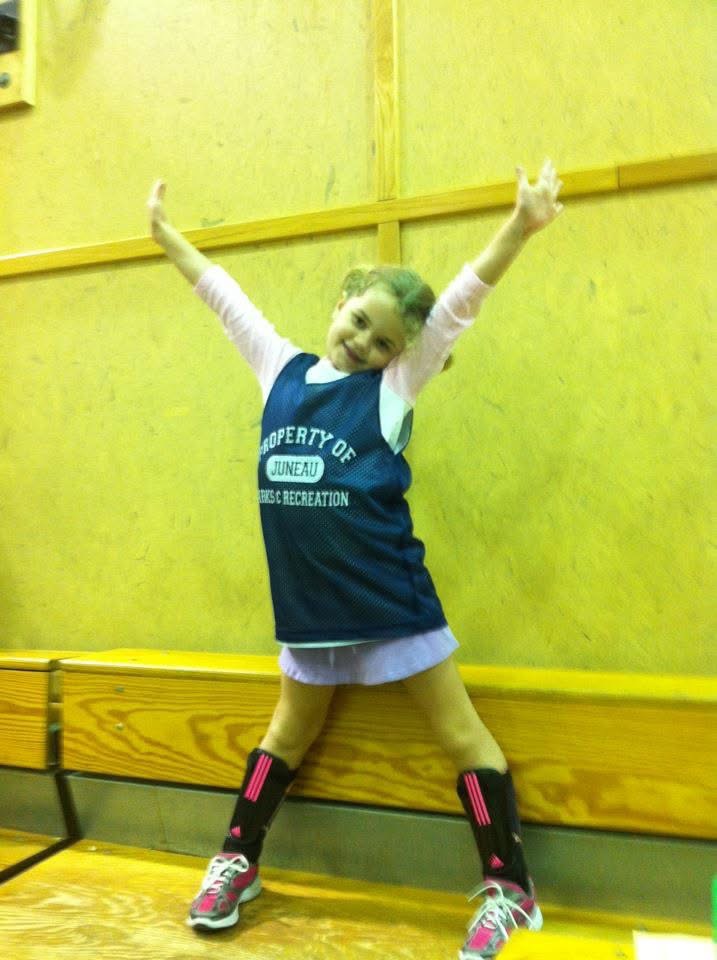
Lauren Sargent never stayed in one place during her childhood. Moving was her sixth sense; She’s lived in Alaska, New York, Massachusetts, Virginia, and Washington. Thanks to the constant movement of her dad’s military career, she never got the chance to solidify lasting connections with her classmates.
“I had to learn how to move all the time and create new friendships,” Sargent said. “I was always considered the ‘new girl.’ [It was also hard since] I’m autistic.”
The constant change of scenery didn’t just affect Lauren socially; it affected her blooming sports career as well. Similar to the ever-evolving list of new cities she lived in, she was collecting a large number of sports.
“I did swimming, gymnastics, dance, field hockey, archery, tap, soccer, and volleyball,” Sargent said, explaining how she never felt at home on her early sports teams. Not only did she feel out of place, but she also lacked a passion for a majority of her sports.
Lauren grew up surrounded by sports culture; after doing track and field during high school, her mother played college rugby at Norwich University. Her sister followed in her footsteps, joining the track team once the family moved to Gloucester in Lauren’s 6th grade year. But Lauren? She failed to find the right fit.
“I didn’t want to do a lot of sports,” Sargent said. “I was made to do sports that I didn’t want to do. I thought they were stupid. My dad was deployed in Saudi Arabia, so I missed him a lot.”
Lauren wouldn’t find the sport for her until eighth grade, a realization she made by complete chance.
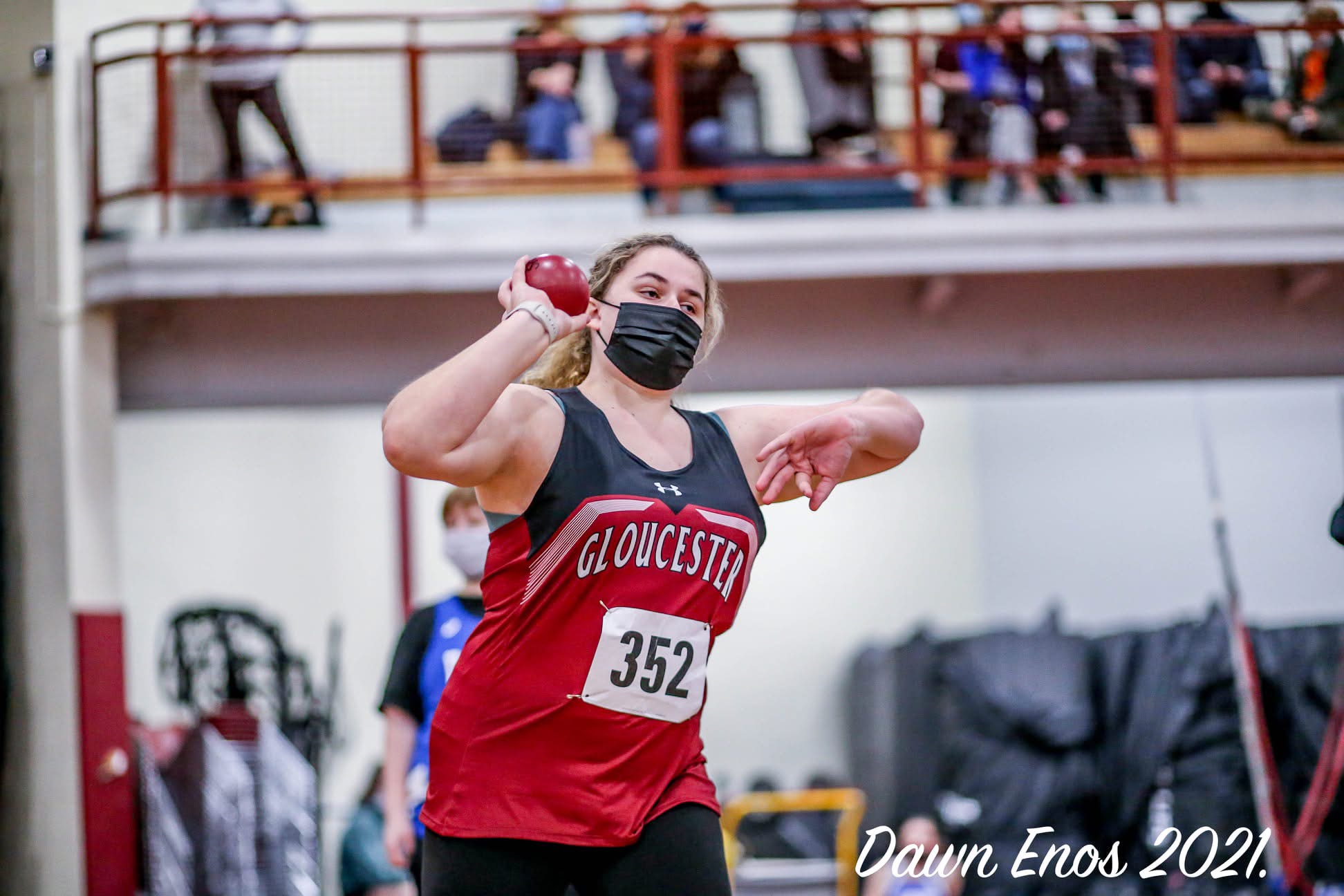
Entering her eighth-grade year at O’Maley Innovation Middle School, Lauren was still unsure of her future. She didn’t have lots of friends, something that plagued her in each new town she moved to. To make matters worse, she had just quit volleyball, being left without a sport once again. But that all changed one day.
“My mom was working at Gloucester High School in the same room as the track coach,” Sargent said, recounting the day that would pivot her life in Gloucester. “They both wanted me to join the team. One day, [My mom] told me, ‘You’re coming to your sister’s practice today’. She didn‘t want to drive to O’Maley to pick me up since she was coaching at my sister’s practice.”
“[The coaches] had been trying to think of a way to get me to go because I said I would never do track,” She said.
Runners surrounded the track, warming up and preparing for practice. Lauren watched the athletes as they moved in sync around the practice area. The sport failed to allure her.
Despite their attempts, Lauren wasn’t interested in hitting the course with the older kids. It wasn’t the track that fascinated her; it was the throwing circle.
That day, the coaches planned a throwing practice with GHS Hall of Fame member and 2-sport D1 athlete Jim Unis.
“I immediately fell in love with [track],” Sargent said. “He taught me how to throw shot put. I loved it.”
From that moment on, Lauren knew she had found her purpose.
Lauren started her career at Gloucester High School strong, hitting 20 feet for the first time at the Freshman-Sophomore State Championship. She only improved once she started her first outdoor season, even placing 11th during the NEC Championship.
She started learning rotational shot put the next year, improving by 5 feet during the winter season. In the outdoor season, she reached the high 20s for the first time.
College coaches began to take notice of her skills in her sophomore year. Castleton State University was the first school to contact her, but other schools around Massachusetts and Florida began following her. She went to college prospect camps at Gordon College and Brown University, attempting to garner interest from coaches at the next level.
“I remember the Brown [University] coach saying I had potential,” Sargent said.
Lauren switched back to power throwing after a failed stint at rotational in her junior year. That same year, she started getting recruitment emails and entry-level offers from a number of colleges.
Everything seemed set for Lauren. She was garnering D2 and D3 offers from schools around the nation. She was being selected for NEC awards. She began advancing to state-wide meets. She was in a position every young athlete dreams of.
But it’s rare for a career to go that smoothly. As almost every athlete knows all too well, Lauren hit an inevitable roadblock: injuries.
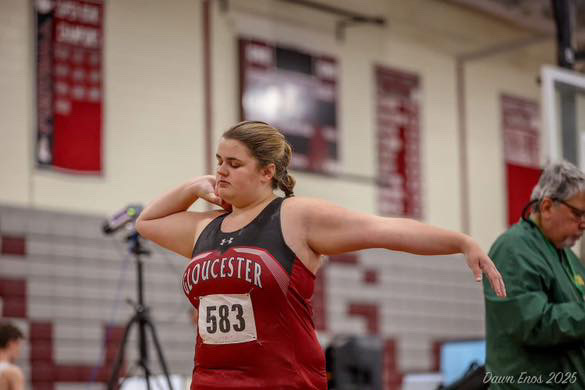
Around 15 track athletes gathered outside of Newell Stadium one day in November, looking to run a pre-season captains’ practice for the fast-approaching indoor season. The Gloucester Teachers’ Strike was in full swing, meaning the team had to run outdoors instead of in the gym.
The problem? Newell Stadium was locked. The only way in? Climbing over the fence.
After the athletes managed to get into Newell Stadium to practice, they went along with their practice as normal. Afterwards, they faced a similar challenge: getting out of the complex. That meant climbing over the fence again.
“[After practice], I jumped off the fence and landed on my butt badly,” Sargent said. “I ignored my pain since my family was in the middle of the strike.”
But the pain continued to pain her: sleeping, walking, sitting, everything. She eventually decided to go to the doctor to find the root of the pain. When she jumped off the fence, she had a slipped disc along her spine. It wasn’t bad enough to halt her senior season, at least not yet.
“[During my injury], I hated track. I was constantly in pain. I had extensive physical therapy for my back.”
Lauren also hurt her knee, furthering her issues with injuries while in the throwing circle. Her injuries led to her final high school indoor season being cut short, forcing her to miss the NEC Championship and All-States.
Despite the injury, Lauren continued to seek recruiting opportunities. She emailed Keene State University, Sacred Heart University, and all the other schools she applied to.
She got responses from most of the colleges she emailed, but one continued to stick out.
When Coach Ian from Castleton emailed Lauren in 2024, she thought it was fake.
“I assumed it was spam,” Sargent said when recounting the email. “I just did a little email back saying, ‘ya, I’d love to talk!’, not thinking it was real.”
She got a response back, and the connection continued from there. Every Thursday, Coach Ian checked on Lauren’s progress while sending updates from the Castelton team.
She got an offer coming into her senior year, but she denied the offer.
“I was set on going to Roger Williams,” Sargent said. “I wanted to go to the school and wanted to take a shot at joining their track team.
Lauren said Coach Ian expressed his disappointment with her decision, but looked forward to possibly seeing her at a track meet.
Despite aspirations to attend Roger Williams University, Lauren announced her decision to attend Pace University in New York. She decided to go to Pace academically, but it wasn’t long before she changed her mind.
“I chose to undo my commitment once I found out how serious my injury was,” Sargent said. “I wasn’t done with track just yet. I couldn’t.”
After de-announcing her decision to attend Pace University, Lauren emailed Coach Ian back.
”He told me, ‘I’m glad you came back to your senses,'” Sargent said.
Lauren was offered a spot on the Castleton team, but her decision became complicated once again.
It was a surprise when she opened the email; Lauren was accepted into Northeastern University. The university was one of her reach schools, one of the hardest by far. Lauren had the opportunity to continue her education at one of the best schools in the nation, but that meant giving up her track career.
Lauren was met with two options: she could go to Northeastern University, a globally recognized research institution with a 6% acceptance rate, or Vermont State University at Castleton, a state school with an 80% acceptance rate and a looming offer to continue her track career.
Her choice?
“I knew I had a chance to throw [at Castelton]. I had no chance at Northeastern. I wanted to continue my career. Even if it meant giving up the education at Northeastern.”
Despite her injury barring her from PR-ing in the ways she wanted to, Lauren fought back from adversity to cap off a successful career at GHS. She’s been awarded NEC honors multiple years and served as a captain in her final years in the circle.
“Lauren has been our best girls’ shotputter for the past three years,” GHS Head Coach David Coleman said. “I’m proud of her for continuing her track career, and I think she’s going to do great.”
Lauren says she couldn’t have performed as well as she did without her coaches’ and teammates’ support, especially her best friends.
“I’ve made relationships through rough times and good times,” she said. “It’s about finding out who will be there for each other.”
Lauren is set to attend Vermont State University at Castleton with a major in early childhood and special education. She aims to become a teacher after graduation.

